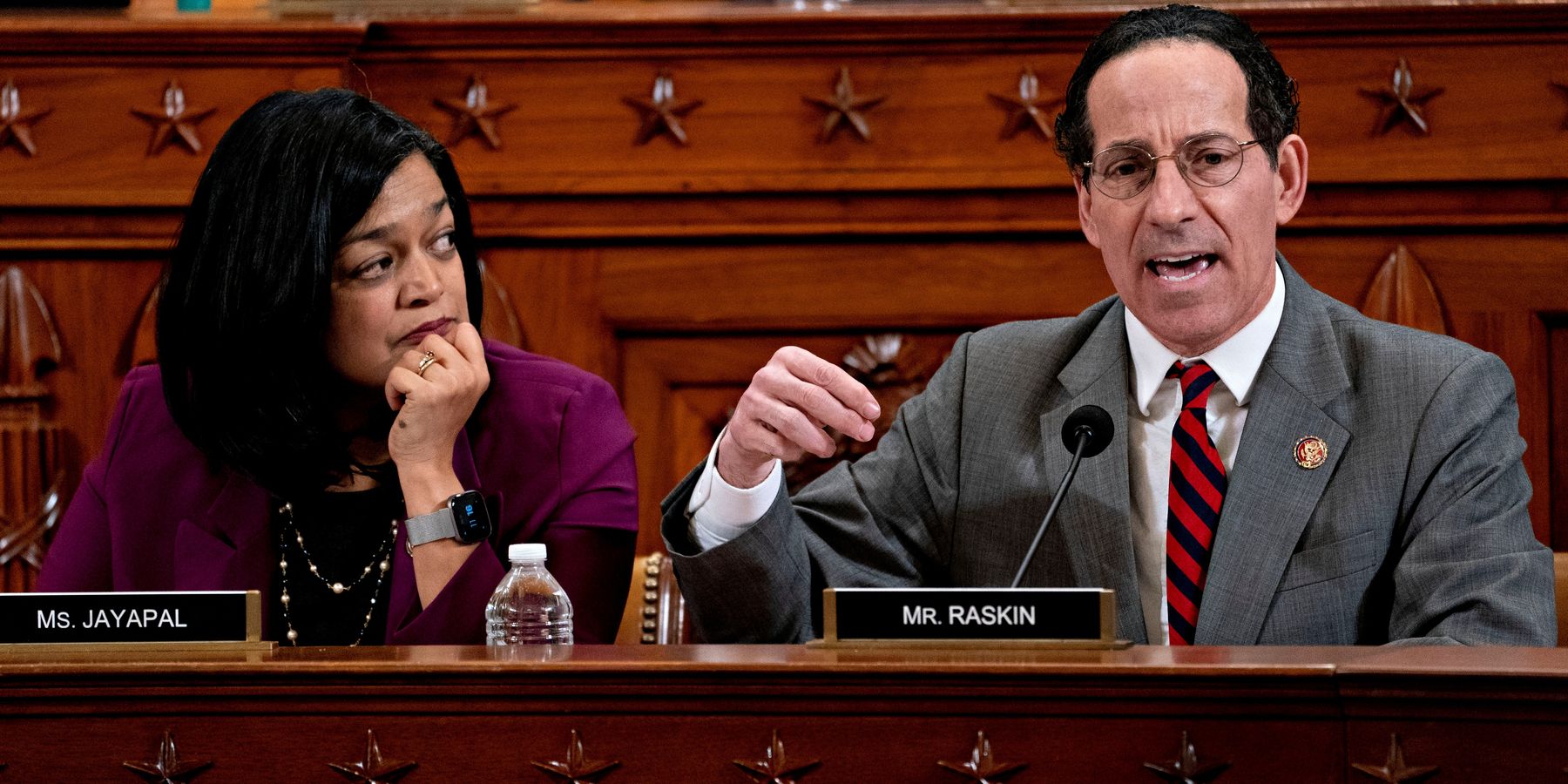On Wednesday, Democratic Reps. Pramila Jayapal (Wash.), Jamie Raskin (Md.), Bill Keating (Mass), Valerie Foushee (N.C.), and Becca Balint (Vt.) introduced a resolution urging the Trump administration to use all possible diplomatic tools to ensure that aid reaches Gaza. The resolution also called for the release of Israeli hostages.
As of Wednesday, the resolution had 92 co-sponsors, all Democrats, including former House Speaker Nancy Pelosi. In her press release, Jayapal stated, “Innocent civilian lives — children and babies — can be saved by ensuring that much-needed aid gets to Gazans. … This humanitarian crisis is man-made and can be solved by allowing aid trucks to enter Gaza.”
The resolution is the House companion to an identical Senate resolution introduced last month by Sen.Peter Welch (D-Vt.). That resolution was supported by all 45 Senate Democrats except Sen. John Fetterman (D-Pa.). The unity of Senate Democrats on getting aid into Gaza reflects American public opinion, although the party has been slow to align with Americans’ views. Over a year ago, 75 percent of Democrats already opposed Israel’s military actions in Gaza. As of April, Pew reported that a majority of Democrats no longer hold a favorable view of Israel.
This dynamic is not limited to Democrats: a recent poll from Data for Progress showed that 76 percent of all U.S. voters (including a 49 percent plurality of Republicans) support a permanent ceasefire in Gaza. Fifty-one percent, including 41 percent of Republicans polled, said they want President Trump to demand a ceasefire as opposed to backing Israel’s new military operation to seize control of the territory.
The House and Senate measures are unlikely to get a vote. Instead they are symbolic, intended to send a message and to unite Democratic support behind getting aid into Gaza. Welch’s bill succeeded in uniting Senate Democrats, and Jayapal’s bill has already attracted additional supporters.
A few Republicans have also expressed concerns about Israel’s conduct. Rep. Thomas Massie (R-Ky.) has condemned it most clearly, posting on X on May 29 that: “Nothing can justify the number of civilian casualties (tens of thousands of women and children) inflicted by Israel in Gaza in the last two years. We should end all U.S. military aid to Israel now.”
Massie’s stance goes beyond what many Democrats have been willing to call for, although his position does reflect the views of the majority of Americans. A recent poll found that 49 percent of Republicans want Trump to rein in Israel, including by withholding security assistance in order to end the bombings, in contrast to 29 percent who oppose that position.
The House resolution comes at a critical time. For over three months, Israel has prevented almost all food, water, and fuel from entering Gaza. The Gaza Humanitarian Foundation, a new entity established by Israel and staffed by American mercenaries, has been responsible for the deaths of dozens of Palestinians since it launched operations in late May. As of Wednesday, the GHF had shut down its four distribution sites after the IDF killed dozens of Palestinians who had tried to receive aid during three separate incidents.
Traditional aid groups like the World Food Program and UNRWA have repeatedly condemned the GHF’s militarization of aid, as well as its general ineptitude and apparent disinterest in preventing famine; the head of UNRWA said that the GHF instead reflects a “distraction from atrocities.” As of early May, the World Health Organization reported that 57 children had already died of malnutrition; the blockade has largely remained in place since then.
The Trump administration has yet to apply significant pressure to Netanyahu to insist that aid be allowed into Gaza. Yet images of starving babies, and now children reportedly coming under fire while trying to obtain food, continue to stream out of Gaza. Given where American public opinion is heading on Israel’s starvation of Palestinians, more members of Congress may decide that voting in favor of getting aid into Gaza is hardly a controversial position.

















